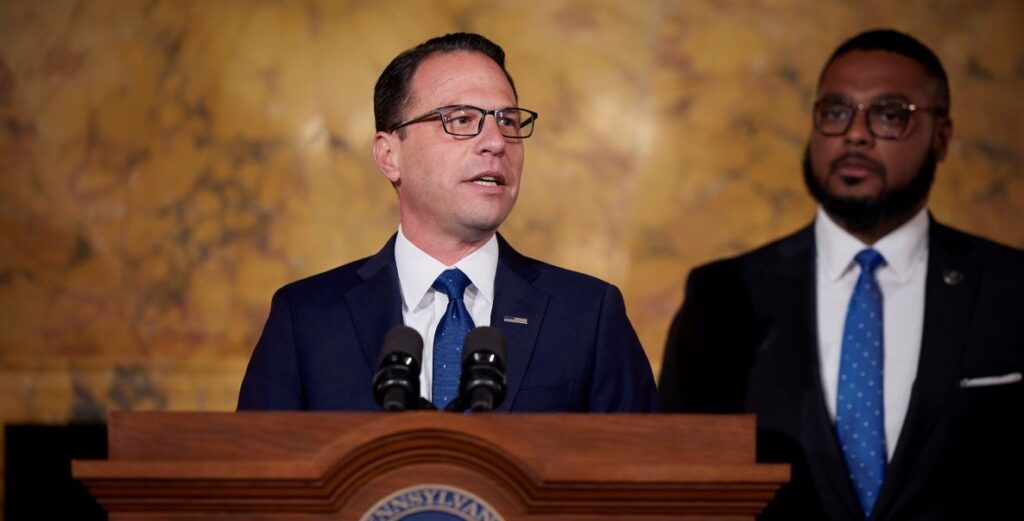On January 18, his first day in office, PA Governor Josh Shapiro issued an executive order eliminating the requirement of a four-year college degree for large numbers of jobs in state government. As the New York Times reports, “His move opens up 92 percent of state government jobs — approximately 65,000 positions — to anyone with ‘the relevant work experience and skills-based training, regardless of their educational attainment.’”
Governor Shapiro’s move follows similar policies enacted last year in Maryland and Utah.
My academic friends have asked me if I am outraged by Governor Shapiro’s action. I am not. I support it.
A potential employee’s experience and skills should always be more significant than mere credentials. (That’s essential to keep in mind, by the way, as the Citizen interviews candidates for Philadelphia mayor.) It’s important in every hiring decision.
Organizations too often require college credentials as a lazy sorting device, allowing employers to assign stacks of résumés to the “no” pile without a second glance. Contrast that to the careful deliberations of the sorting hat in the Harry Potter books. Someone may have outward credentials as a Slytherin (cf. Harry), but on analysis of behavior and accomplishments, he belongs in Gryffindor.
Eliminating bachelor’s degrees: a must-have for state employment
College and university leaders worthy of the public trust have always understood that diplomas are not mere credentials. University degrees stand for education that goes way beyond career preparation. In fact, these degrees should represent the integration of contemplation and action. A high school senior I know received an admission letter from Ramapo College of New Jersey that says the following: “You will graduate not only with a defined skill set, but with all the intangible skills needed to thrive in an ever-changing world.”
So, you may ask, shouldn’t entry-level PA state employees have that combination of “defined skill set” and “intangible skills?” Eventually, yes. Many potential state employees are well on their way to this integration through military service and job experience. Eligibility for state government employment will provide opportunities for ongoing learning on the job. Ideally, their employment will motivate continuing education, especially if the Commonwealth of Pennsylvania offers tuition benefits.
Organizations too often require college credentials as a lazy sorting device, allowing employers to assign stacks of résumés to the “no” pile without a second glance.
In fact, the removal of the bachelor’s degree requirement could paradoxically lead to additional applicants for college study. Right now, a significant number of lower-income urban and rural high school graduates experience doors shut in their face when it comes to meaningful employment. Recognizing military service and job experience as substantial might encourage workers to further their education based on internal motivations: curiosity and aspirations to improve problem-solving abilities. If Pennsylvania offers free tuition to its employees, these workers will achieve higher educational levels and job promotions.
What should colleges and universities do now?
Don’t complain: Cooperate. Colleges and universities should contact the state government now to work out education/work partnerships. They should lobby strenuously for state tuition support to assist employees in gaining bachelor degrees.
Those institutions that do not now offer current undergraduates paid internships integrated with college study should develop those programs immediately. I’ve written before about the power of college internships, in Following Cassidy Hutchinson’s Example. It is no longer possible to affirm the power of a liberal arts education without providing opportunities for students to apply critical thinking and writing skills to real situations.
What can citizens do?
-
-
- Encourage talented individuals to apply for state employment, even if they do not have four-year college degrees.
- Advise these individuals to combine continuing education with employment.
- Lobby Governor Shapiro and the PA legislature to offer free tuition for state employees who aspire to complete bachelor’s degrees or to attain master’s degrees.
- Support colleges and universities that integrate paid internships with academic study.
- Offer paid internships in your own organization to college students.
-
Elaine Maimon, Ph.D., is the author of Leading Academic Change: Vision, Strategy, Transformation. Her co-authored book, Writing In The Arts and Sciences, has been designated as a landmark text. She is a Distinguished Fellow of the Association for Writing Across the Curriculum. Follow @epmaimon on Twitter.

